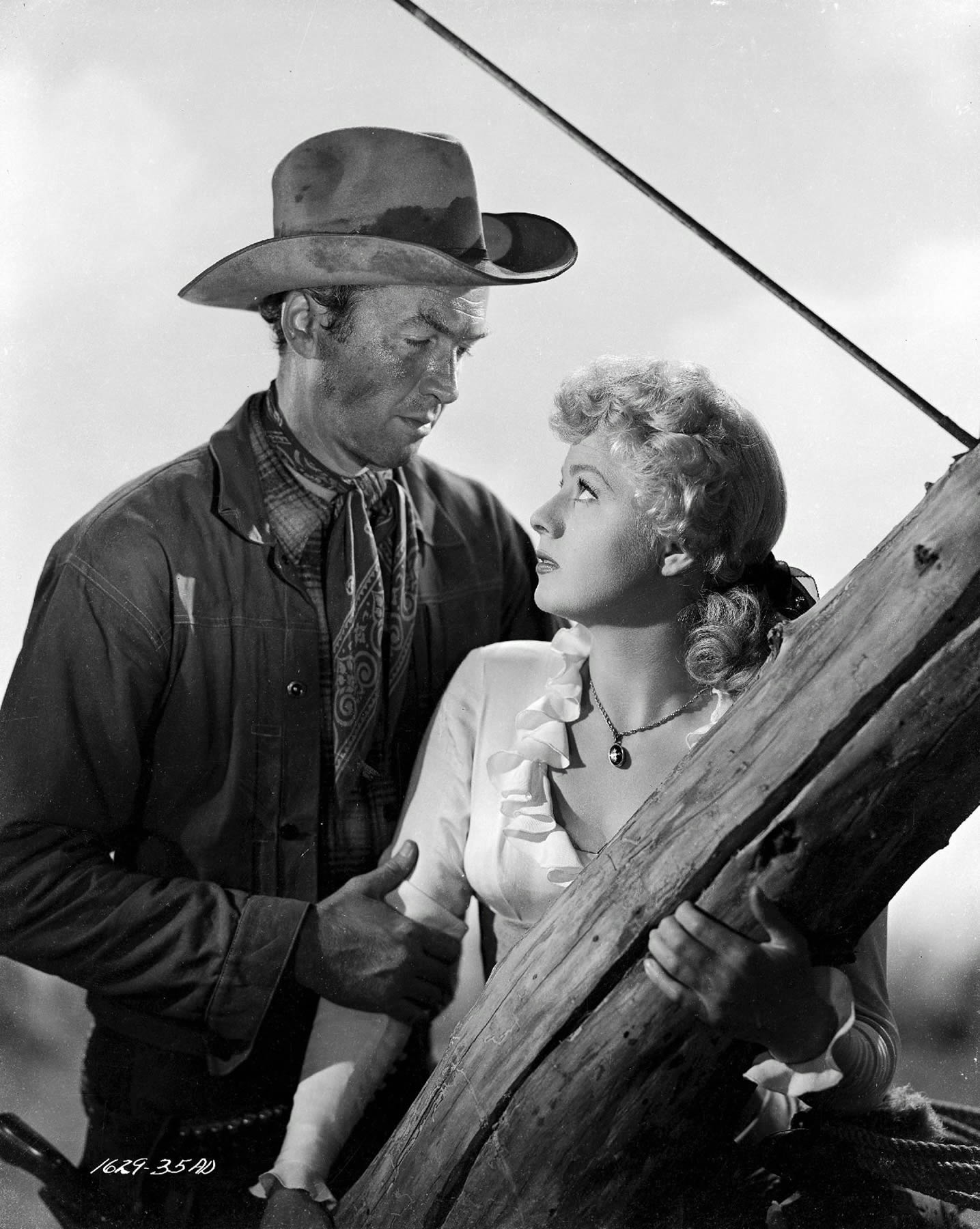Taking a Chance
Winchester ’73 (1950) is an important film for many reasons. It’s the first in a string of five top-notch westerns made over a five-year period that were directed by Anthony Mann and star James Stewart. The other four are Bend of the River (1952), The Naked Spur (1953), The Far Country (1955), and The Man from Laramie (1955).
You could argue that Winchester ’73 is the first modern western. It brings the flawed protagonist from the film noirs over to the westerns. Mann had already made a name for himself with his skillful direction of tough-guy psychological dramas, including T-Men (1947), Raw Deal (1948), and Side Street (1949). By 1950, he was well prepared to reinvigorate the western genre by giving it a darker, more anguished hero.
The success of Winchester ’73 is largely responsible for the rebirth of the genre in the 1950s, and its tone would lead to other revisionist westerns, such as John Ford’s The Searchers (1956) and Sam Peckinpah’s The Wild Bunch (1969). It isn’t fair, however, to say there were no dark westerns prior to 1950. Howard Hawks’ Red River (1948) points in this direction, though the John Wayne character isn’t the protagonist of that film.
Winchester ’73 is also notable for its contribution to the break up of the studio system. Mann couldn’t afford to pay Stewart his usual salary, so Stewart agreed to take a percentage of the profits. That turned out to be a smart move, because Winchester ’73 went on to gross $4.5 million in the U.S. That encouraged similar deals between other actors and production companies, and this alternative method of compensation broke the studios’ control in determining which movies actors would appear in and how much they would be paid.
Stewart was a big star at the time (Harvey was released that same year), though he hadn’t appeared in a western since Destry Rides Again (1939). He was taking a risk, as was Mann, in making a moody western. The public may not have accepted the usually upbeat Stewart as having deep unresolved psychological issues. Obviously, the public was able to handle the complexity, and this type of role proved to be a creative shot in the arm for Stewart, who would go on to play brooding roles in the other Mann-Stewart westerns, as well as Hitchcock’s Rear Window (1954) and Vertigo (1958).
Winchester ’73
(1950; directed by Anthony Mann)
Universal Studios (DVD)
Wednesday, May 28 at 1:00 a.m. eastern (late Tues. night) on Turner Classic Movies
Reviews